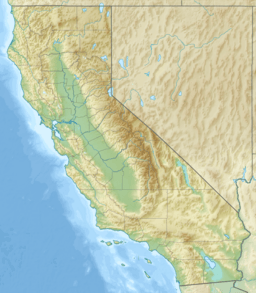Palen Mountains facts for kids
Quick facts for kids Palen Mountains |
|
|---|---|
| Highest point | |
| Elevation | 596 m (1,955 ft) |
| Geography | |
| Country | United States |
| State | California |
| District | Riverside County |
| Range coordinates | 33°47′48″N 115°03′39″W / 33.79667°N 115.06083°W |
| Topo map | USGS Palen Mountains |
The Palen Mountains are a mountain range found in the deserts of southeastern California, USA. They are located in Riverside County, California. These mountains stretch about 15 miles long and 9 miles wide. They are part of both the southern Mojave Desert and the northern Colorado Desert. You can find them near Interstate 10, southeast of the Coxcomb Mountains. They are also northeast of the Chuckwalla Mountains.
Contents
Exploring the Palen Mountains
The Palen Mountains are a fascinating place to explore. They are home to unique plants and animals. The area also has important natural features.
The Desert Lily Preserve
At the northern end of the Palen Mountains, you'll find Palen Pass. This pass is 1,472 feet above sea level. To the west of the mountains is Palen Dry Lake. This area also includes the Edmund C. Jaeger Nature Sanctuary. The Bureau of Land Management protects and manages this sanctuary.
The sanctuary is very special because it protects the beautiful Desert Lily. This plant is also known as Hesperocallis undulata. Many other native desert plants grow here too. The preserve also acts as an important "land bridge" for wildlife. This means it connects different natural areas. Animals can safely move between these areas.
Palen/McCoy Wilderness Area
The Palen Mountains are part of the Palen/McCoy Wilderness Area. The Bureau of Land Management also manages this large wilderness. This area includes five different mountain ranges. Besides the Palen Mountains, you'll find the Granite, Arica, Little Maria, and McCoy Mountains.
These mountain ranges are separated by wide, gently sloping areas. These areas are called alluvial fans or bajadas. They are formed by sediment carried by water. Because this wilderness is so large, it has many different types of plants and landforms.
Wildlife in the Wilderness
The desert wash woodlands in this area provide food and shelter for many animals. You might see burro deer and coyotes. Bobcats, gray foxes, and mountain lions also live here.
The landscape is always changing. You can find Desert pavements, which are flat areas covered with rocks. There are also bajadas, inner valleys, and deep canyons. Dense forests of ironwood trees grow in some places. Rugged peaks rise high into the sky. All these features create a diverse and beautiful desert environment.
 | James Van Der Zee |
 | Alma Thomas |
 | Ellis Wilson |
 | Margaret Taylor-Burroughs |


